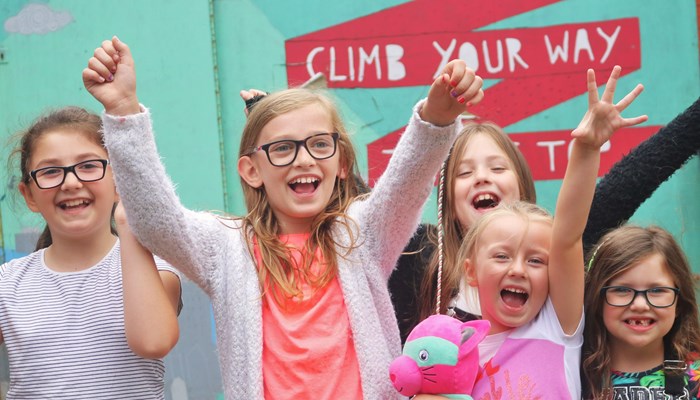Who and what we fund
Find out about the types of organisations and kinds of work we currently provide funding for.

We offer funding to charitable organisations that support people and communities in Scotland who are living with poverty or trauma – this is our overarching focus.
Our funding priorities and decisions are guided and underpinned by our strategy for 2020 - 2030.
Who we fund
Currently, our responsive Our Funds are aimed at constituted community groups and registered charities who are working to alleviate poverty and trauma in Scotland, and who have an annual income of under £2 million.
Charities with an annual income of more than £2 million a year, housing associations and Arms’ Length External Organisations (ALEOs) are not currently eligible for our Large Grants, Small Grants, Wee Grants or Transport Grants.
Our Programme Awards are available to charities with an income over £2million per year. For more information see here.
To be kept informed, please sign up to our mailing list.
What we fund
We provide funding for organisations and initiatives that address:
- Financial Security: tackling the financial and material effects of poverty on people and communities
- Education Pathways: equipping people for the future by supporting learning and skills
- Work Pathways: ensuring paid work is a more reliable route out of poverty and removing barriers so that more people can access fair work.
- Nurturing Relationships: supporting nurturing relationships within families and communities, to help break the cycle between persistent poverty and intergenerational trauma, and support recovery.
We will fund work that helps to meet people’s immediate need, recognising that Covid-19 has sharpened this within communities who were already vulnerable to financial hardship and social upheaval.
However, we also aim to help develop solutions and better ways of working for the longer term. Therefore, our funding is also available to:
- build a better understanding of the causes, impacts and potential solutions to poverty and trauma.
- provide early help to people, aimed at preventing or reducing negative experiences and outcomes due to poverty and/or trauma
- improve the design and delivery of support services and systems for people facing poverty, trauma or both
- try out new approaches as well as doing more of what works.
Work we’ll fund can be universal (aimed at a wide group of people or a whole community) or targeted (aimed at a specific group of people) – as long as it shows how it will meet the needs of people at risk of or experiencing poverty and trauma.
People affected by poverty and trauma
We are particularly interested in funding those who work with the following groups of people, who we know are more likely to experience poverty or trauma:
- Lone parent families
- Other child poverty priority family groups (including larger families, families with young children, and young-parent families)
- Disabled people
- Communities experiencing racial inequity
- Asylum seekers, refugees and those with no recourse to public funds
- Households claiming Universal Credit or related low-income social security benefits
- People with experience of the care system
- Unpaid carers
- Women with low incomes
- Young people (in most cases up to age 25, or 30 for those with additional support needs)
- Older people with low incomes
- People living in deprived places, including rural or remote communities
- People experiencing severe or multiple disadvantage (e.g. due to homelessness, substance misuse and offending)
Approaches
We would like to fund organisations and groups that focus on:
Community: organisations that place communities at the centre of their work and aim to build resilience within communities to tackle issues associated with poverty or trauma
Relationships and rights: organisations which take a relational approach to their work and focus on the key principles of fairness, dignity and respect and recognise the impacts that poverty and trauma can have on people’s lives.
Collaboration: organisations that work with others to deliver services or to change how services are delivered for people facing poverty, trauma or both.
